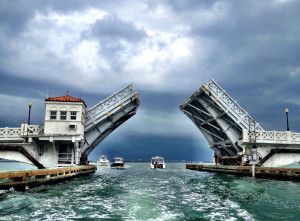 Pleasure boating is a popular pastime in South Florida. But with boating comes problems. One problem associated with boating is the unpredictable nature of damage to the boat. As such, we are often asked whether or not there is insurance coverage for a damaged boat.
Pleasure boating is a popular pastime in South Florida. But with boating comes problems. One problem associated with boating is the unpredictable nature of damage to the boat. As such, we are often asked whether or not there is insurance coverage for a damaged boat.
When your boat is damaged, and you are unable to determine the cause, an insurance company may deny the claim. A recent case decided by the United States Court of Appeals for the Eleventh Circuit helps us understand why insurance companies deny such claims, and also illustrates why that denial is wrong.
That claim came about when the insureds determined that the boat’s engine was beyond repair. The insured’s 85 foot Broward Motor Yacht, the “Alica,” was powered by two turbo charged Detroit Diesel 12v71 engines. While traveling back to Miami, from the Bahamas, black smoke was seen coming from the engines.
Upon safely arriving at Miami, the insured conducted an investigation of the engines. The insured was unable to determine what was wrong with the engines, nor was he able to determine the exact nature of the loss. He was also unable to repair the engine. As a result, the insured reported the claim to its insurance company.
The insured had an all-risk policy which means that coverage is provided against all risks except fraudulent acts of the insured. Under that policy, it was the insured’s burden to show that the loss arose from a covered peril.
The insurance company investigated the claim and determined that that the loss was due to wear and tear, which was not covered under the policy. They therefore denied the claim.
After the claim was denied, the insureds then had their expert inspect the vessel to determine the cause of the loss after they received the denial by the insurance company. The insureds were able to determine that the damage was caused by a relief valve in the oil system that was fixed in the open position that eventually caused the starboard engine’s failure.
A lawsuit was then filed in the United States District Court for the Southern District of Florida. The trial court initially ruled in favor of the insurance company, and the insured appealed that adverse ruling to the 11th Circuit Court of Appeal. On Appeal, the appellate court reversed and sided with the insured.
On appeal, the Appellate Court had to determine whether the Trial Court correctly interpreted the insurance policy to exclude coverage. They also had to determine whether the insureds met their burden of establishing an accidental and fortuitous loss under the all-risk marine insurance policy.
The Appellate Court noted that all the insured had to do was demonstrate that the loss was fortuitous. On the other hand, they did not have to explain the precise cause of the loss.
The Appellate Court here reasoned that the insureds had satisfied their burden. As a result, the insured should not have been made to prove the cause of the actual engine failure. However, the court noted that the fact that the insured was able to prove the cause of the actual engine failure – something they did not have to do – further supported the conclusion that was an accidental and fortuitous loss.
The Court determined that the insureds had a light burden in this case and that making the insureds prove more than what was required seemed contrary to having an all-risk insurance policy.
Given the facts of this case, the Appellate Court concluded that the case should proceed at the trial level and that at the trial level the burden shifted to the insurance company to prove the applicability of one or more of the insurance policy’s exclusions.